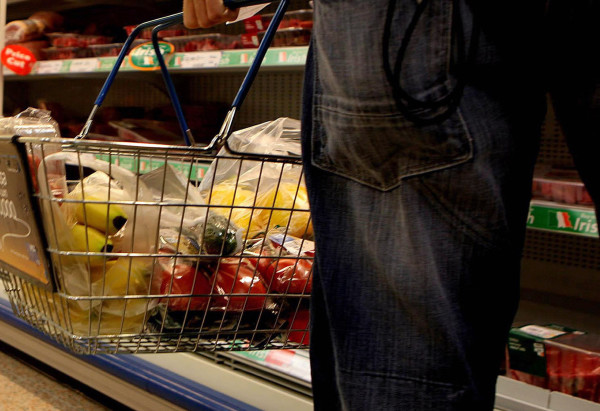

UK inflation dropped to 2.4 per cent in April, causing sterling to fall as the market grew increasingly doubtful interest rates would soon.
The fall in inflation was unexpected, with the Bank of England having anticipated no change this month. The central bank's long-term target for inflation is 2 per cent.
Inflation fell by 0.1 percentage points, with falling air fares, because of the earlier timing of Easter, the largest contributor - though this was offset by rising petrol prices.
Ben Brettell, senior economist at Hargreaves Lansdown, said: "Inflation falling for the third month in a row further dents any hopes of a late-summer rate rise from the Bank of England.
"The Bank’s currently thought likely to put rates up in August. But it looks to me like 2018 will be another year of the Goldilocks economy - not too hot to stoke inflation and force interest rates higher, and not too cold to induce any panic among policymakers.
"I think we might not see a rate rise for the rest of the year. When they do rise, they’ll do so only gradually, and peak at much lower levels than in previous cycles.
"But while savers will be disappointed, it’s pretty good news for investors. Stock markets don’t tend to like rising interest rates much, so an environment where rates rise only gradually should be supportive for the UK stock market."
Core inflation, which is a component of the data that is closely watched by markets, came in at 2.1 per cent - down slightly on the previous month to its lowest level for 13 months.
This measure strips out the more volatile elements of the data, such as fuel and food, to show the level of price movements for goods for which there is regular demand in the economy and the level of price is more stable.
Woodford Investment Management said the inflation data was good news.
The company said: "Positive data on UK inflation this morning, or rather, the lack of it – although this may initially be greeted with sterling weakness, it’s good news for consumers (better real wage growth) and for the housing sector (more confidence in the mortgage market)."
Stephen Clarke, senior economic analyst at the Resolution Foundation, said: "The rise in inflation this month is driven by price rises closer to home - like cultural activities, hotels and restaurants ‑ emphasising the fact that domestic cost pressures are building.
"By contrast, imported cost pressures continue to abate. However, although there’s been some respite from imported cost pressures, there is evidence that they could rise again over the next six months."
david.thorpe@ft.com




